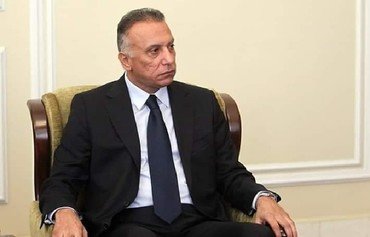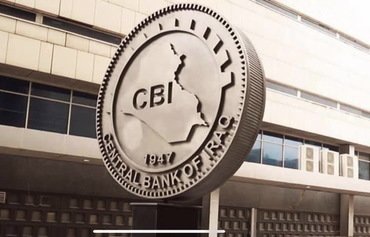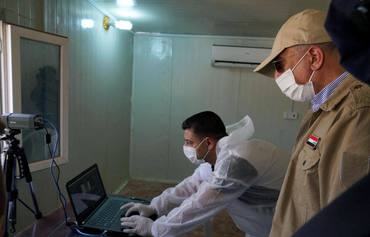In order to ensure the continued success of its counter-terrorism efforts, the new Iraqi government is placing people who played effective roles in the war on the "Islamic State of Iraq and Syria (ISIS) in senior security positions.
Security experts said this step reflects the focus of new Prime Minister Mustafa Kadhemi's government on stabilising the security situation and addressing such obstacles as lawlessness and illegal weapons proliferation.
Kadhemi, whose government was approved by parliament on May 7th, chose military figures for two key ministries: former army chief of staff Othman al-Ghanimi was appointed Minister of Interior, and former commander of the ground forces, Lt. Gen. Jumaa Inad al-Jubouri, as Minister of Defence.
The two figures are known for their "high professionalism and demonstrated exceptional performance" during the war on terror, said Iraqi MP Katah Najman al-Rikabi, who serves on the security and defence committee.
![Iraqi Prime Minister Mustafa Kadhemi during a May 28th meeting with military and security leaders to discuss enhancing efforts to eradicate ISIS. [Photo courtesy of the Prime Minister's media office]](/cnmi_di/images/2020/06/11/24397-meeting-kazimi-defence-600_384.jpg)
Iraqi Prime Minister Mustafa Kadhemi during a May 28th meeting with military and security leaders to discuss enhancing efforts to eradicate ISIS. [Photo courtesy of the Prime Minister's media office]
Their appointment was a positive move "as it faced no objections from parliament, given that these generals are known for their competency and expertise in their field", he told Diyaruna.
Kadhemi also reinstated and promoted General Abdul Wahab al-Saadi, a popular military figure whose abrupt dismissal from the Counter-Terrorism Service (CTS) by previous premier Adel Abdul Mahdi in September had been a main catalyst of the first protests in Iraq. Al-Saadi now heads the CTS.
Moving ahead with anti-terror fight
The appointment of these leaders indicates that the new government is moving ahead firmly with the fight against ISIS and that it is "in the process of launching more operations to permanently eradicate" the group, al-Rikabi said.
In his first statement after assuming his duties, al-Saadi pledged to work towards "protecting the state and its citizens from terrorist threats".
The decision to reinstate and promote al-Saadi was an acknowledgment of his role and courage in the liberation battles and was widely welcomed by Iraqis, security expert Mohammed Razzaq al-Rubaie told Diyaruna.
Kadhemi's previous role as intelligence chief has allowed him to build and maintain relations with all security and military commanders who were influential in the fight against ISIS, he said.
Today, the new PM is seeking to benefit from their expertise in maintaining the momentum in fighting and defeating terrorist remnants, as evidenced in the large scale security campaigns currently underway in several areas, he added.
This effort has recently contributed towards destroying a large number of enemy hideouts, and killing or detaining senior ISIS commanders including deputy ISIS leader Hajji Tayseer, according to al-Rubaie.
He said the new appointments also aim to curb the proliferation of illegal weapons and the activities of armed militias.
Independence of military institutions
Government appointments also included the al-Jazeera Operations Commander, Maj. Gen. Qassim al-Mohammadi, a leading figure in the fight against ISIS, as commander of the ground forces.
Brig. Gen. Yahya Rasul, a prominent media figure throughout the war on ISIS, was appointed official spokesperson for the Commander-in-Chief of the Armed Forces.
The new appointments "support the independence of military and security institutions and shield them from the quota system and political and party pressures", said security analyst Safa al-Asam.
Promoting figures who have had a stellar track record during the war "is an important move that would positively influence the security situation", he said, noting that ISIS remnants have taken advantage of the recent popular unrest and lax security measures in remote areas to launch new attacks.
"However, in light of the most recent military changes, we expect the ISIS threat to be eliminated in the next couple of months," al-Asam said.

![Iraq's Counter-Terrorism Service head Abdul Wahab al-Saadi and PM Mustafa Kadhemi pose for a photo with CTS soldiers on May 26th. [Photo courtesy of CTS]](/cnmi_di/images/2020/06/11/24398-kazimi-forces-iraq-600_384.jpg)







Muslim
Reply1 Comment(s)